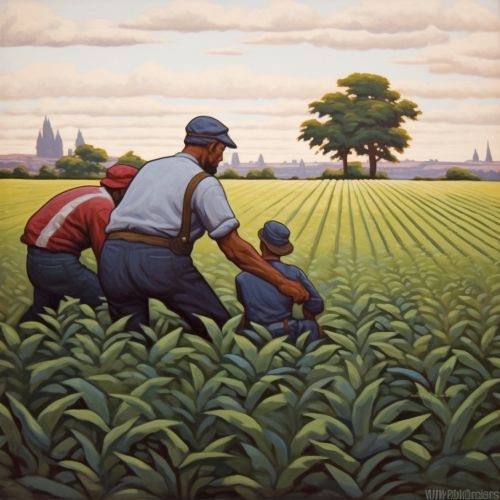Agricultural cooperative
Overview
An Agricultural cooperative, or agri coop, is a type of cooperative that unites agricultural producers, such as farmers or ranchers, on a voluntary basis. The primary objective of these cooperatives is to optimize the economic results of its members' agricultural activities by pooling production and resources. Agricultural cooperatives can take various forms, including agricultural service cooperatives, agricultural supply cooperatives, and marketing cooperatives.


History
The concept of agricultural cooperatives has a long history, dating back to the agricultural societies of ancient civilizations. However, the modern form of agricultural cooperatives emerged in the 19th century in Europe, particularly in Germany and Denmark, in response to the industrial revolution and the consequent changes in the agricultural sector.
Types of Agricultural Cooperatives
There are several types of agricultural cooperatives, each serving different purposes and having different operational methods.
Agricultural Service Cooperatives
Agricultural service cooperatives provide various services to their member farmers. These services can include access to markets, credit facilities, and technical and managerial assistance.
Agricultural Supply Cooperatives
Agricultural supply cooperatives deal with the supply of inputs required for agricultural production. This can include seeds, fertilizers, machinery, and other farming equipment. By pooling their purchasing power, members can often obtain these supplies at lower costs.
Marketing Cooperatives
Marketing cooperatives are formed to help farmers sell their products more effectively. They can provide a platform for farmers to collectively sell their products, negotiate better prices, and reach larger markets.
Benefits of Agricultural Cooperatives
Agricultural cooperatives offer several benefits to their members. They can help farmers gain access to necessary resources and services, reduce costs through economies of scale, and increase bargaining power in the market. Additionally, they can also provide a platform for farmers to share knowledge and best practices, thereby improving overall productivity and sustainability in the agricultural sector.
Challenges and Criticisms
Despite their benefits, agricultural cooperatives also face several challenges. These can include issues related to governance, financial management, and competition with commercial enterprises. Furthermore, some critics argue that agricultural cooperatives can potentially lead to inefficiencies and inequalities among members.
Future of Agricultural Cooperatives
The future of agricultural cooperatives is influenced by several factors, including technological advancements, changes in market dynamics, and evolving consumer preferences. With the increasing emphasis on sustainable agriculture and local food systems, agricultural cooperatives are likely to play an even more significant role in the future.
